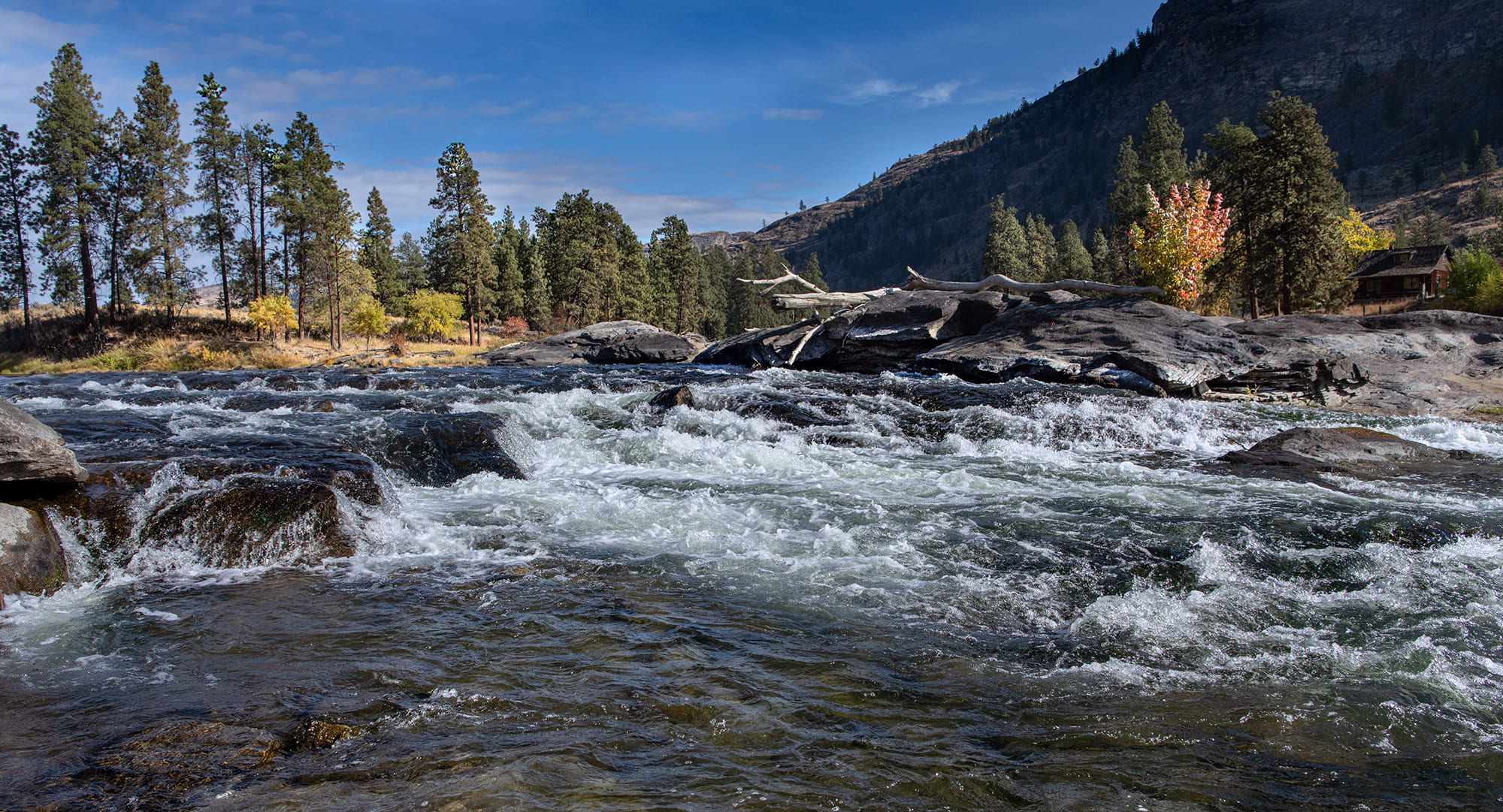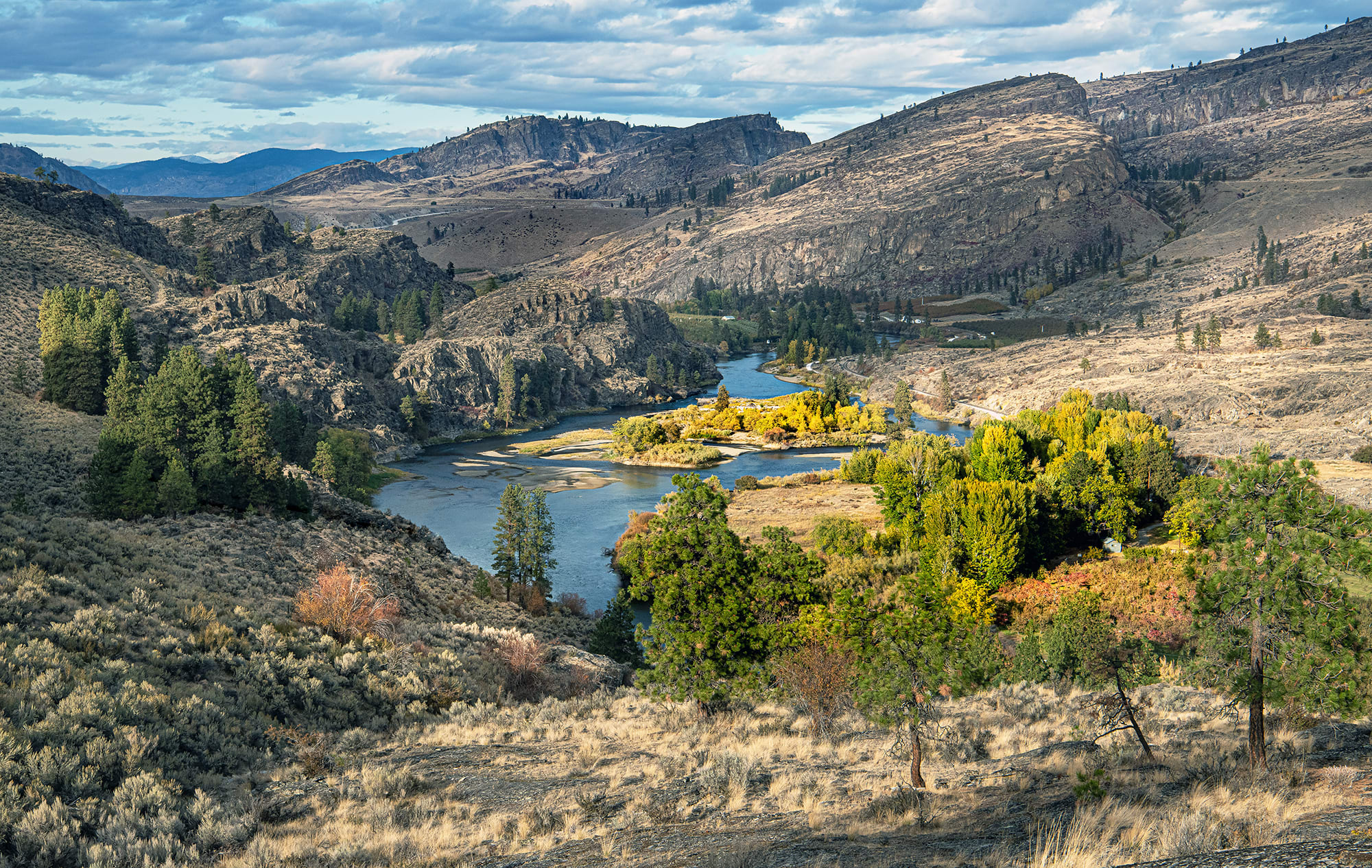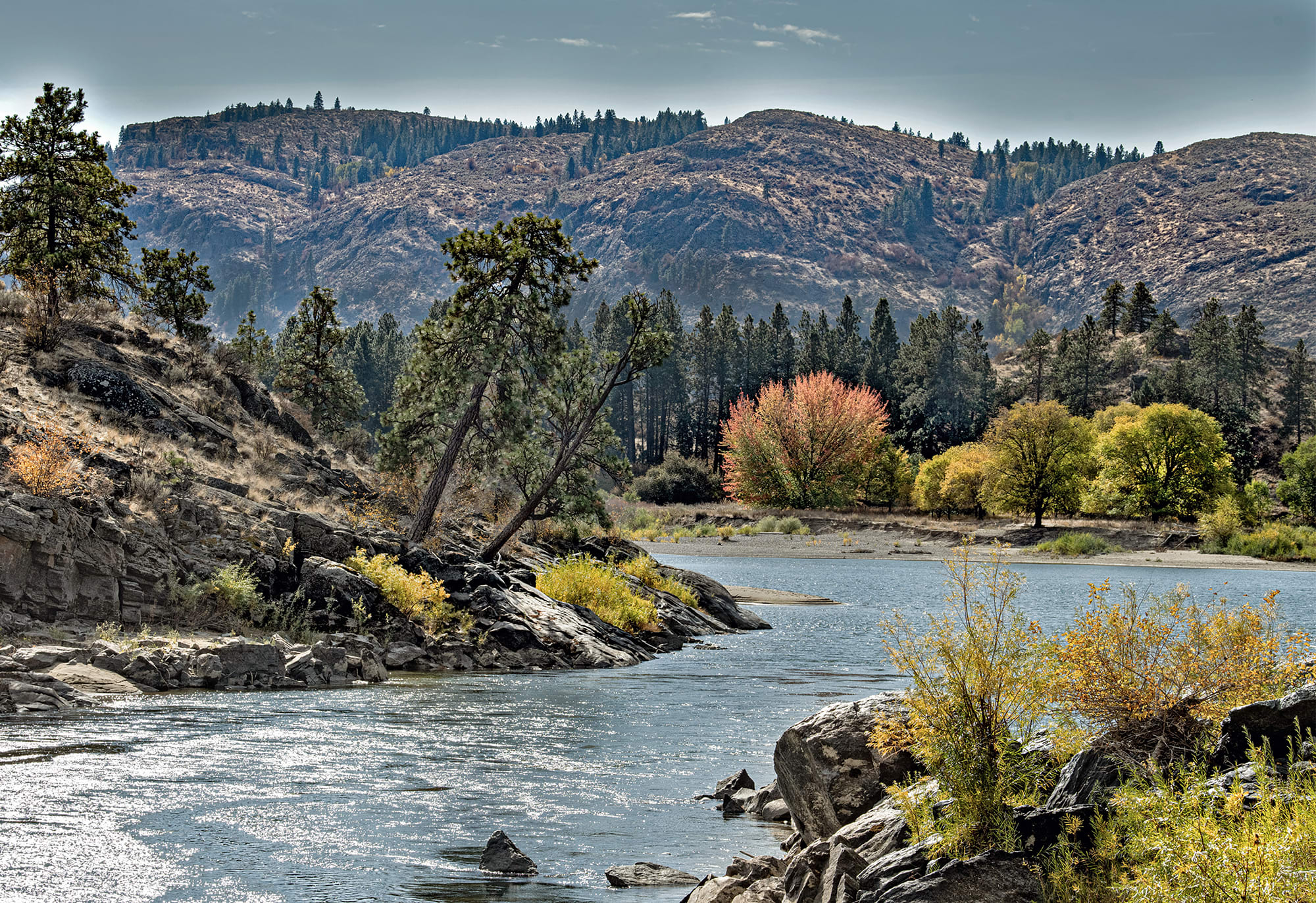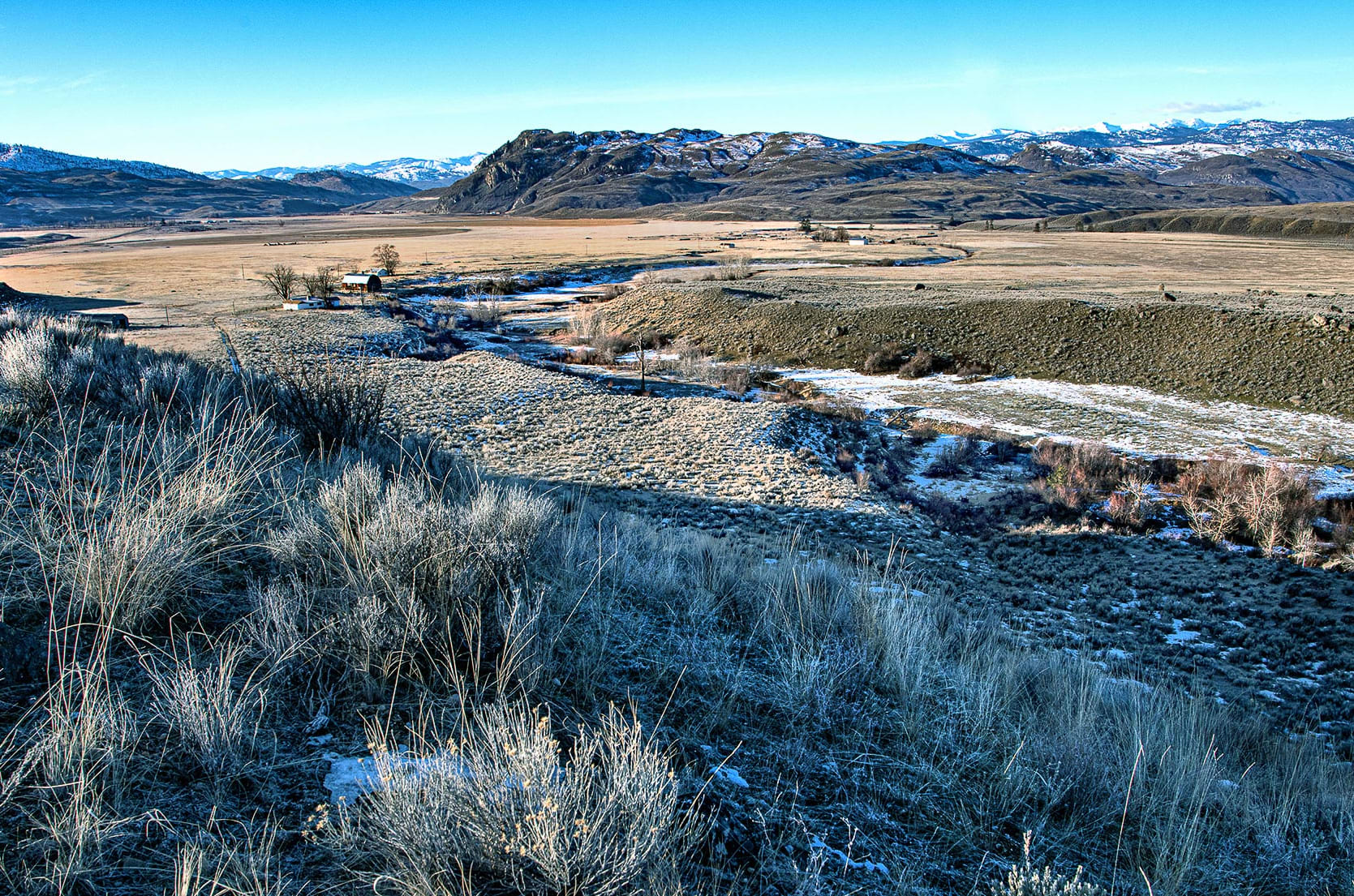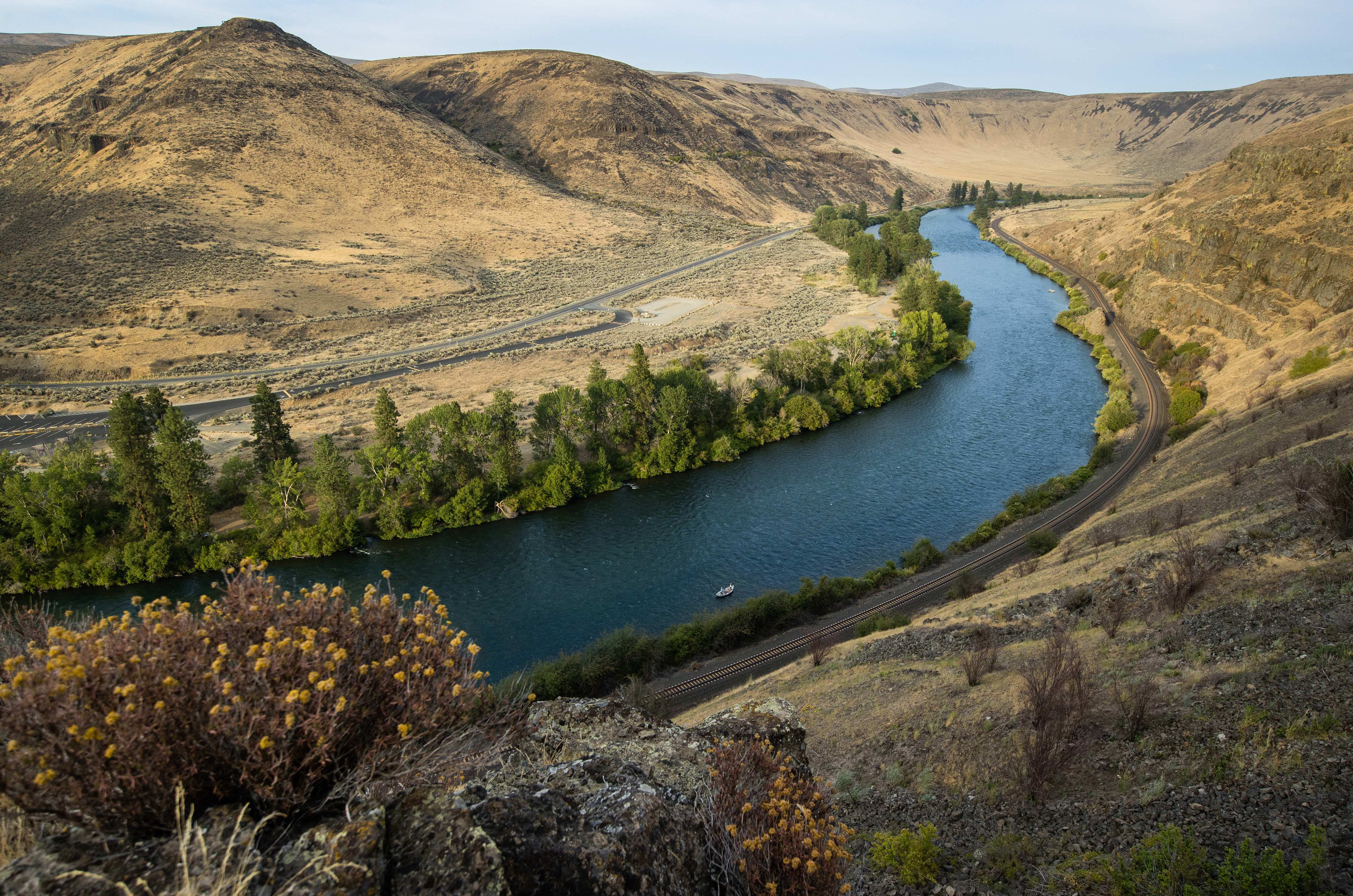A CONSERVATION GEM ON THE OKANOGAN RIVER
On Washington’s Okanogan River, Western Rivers Conservancy conserved the 727-acre McLoughlin Falls Ranch in order to protect two miles of the Okanogan and a key piece of one of the state’s most important wildlife corridors.
The Okanogan River originates in Canada’s Okanagan Lake and flows 115 miles through oblong lakes, low rolling hills, expanses of sagebrush and stands of Ponderosa pines, eventually emptying into the Columbia River in north-central Washington. Along its banks, fertile agricultural lands fan out for miles and miles, giving rise to productive farms, orchards and vineyards.
Roughly 30 miles south of the Canada-US border, the Okanogan dips into the glacier-carved McLoughlin Canyon, one of the most scenic and historic reaches of the river—and the location of McLoughlin Falls Ranch. Named after a big Class II rapid called McLoughlin Falls just off the banks, the ranch makes up a critical part of a larger wildlife movement corridor that spans from the Cascade Mountains in the west to the Kettle River Range in the east. Mule deer migrate between the valley and higher elevations, and the area is home to cougar, elk, bighorn sheep, sharp-tailed grouse and the country’s healthiest population of Canada lynx.
PROTECTING HABITAT, PRESERVING HISTORY
McLoughlin Falls Ranch possesses key stands of riparian forests that shade the river and help keep the Okanogan’s temperatures low. Despite intense pressure, the river supports one of only two remaining self-sustaining runs of sockeye salmon in the entire Columbia Basin, as well as Chinook and steelhead populations that are still hanging on.
From a historical perspective, McLoughlin Falls Ranch is also important. The property and surrounding region have long been used by people as a trading, hunting and fishing route. The ranch is an ancestral fishing site for the Confederated Tribes of the Colville Reservation, and the site was used as a stagecoach stop for miners and settlers.
WRC purchased McLoughlin Falls Ranch in 2022 and held the property while pulling together the funding and partnerships needed to permanently protect it. In March 2023, we conveyed the southern portion of the property to WDFW and the northern portion to the Colville Tribes. This unique outcome ensures the ranch will remain undeveloped for the benefit of fish, wildlife and people, including those who’ve had ties to this land for centuries.

